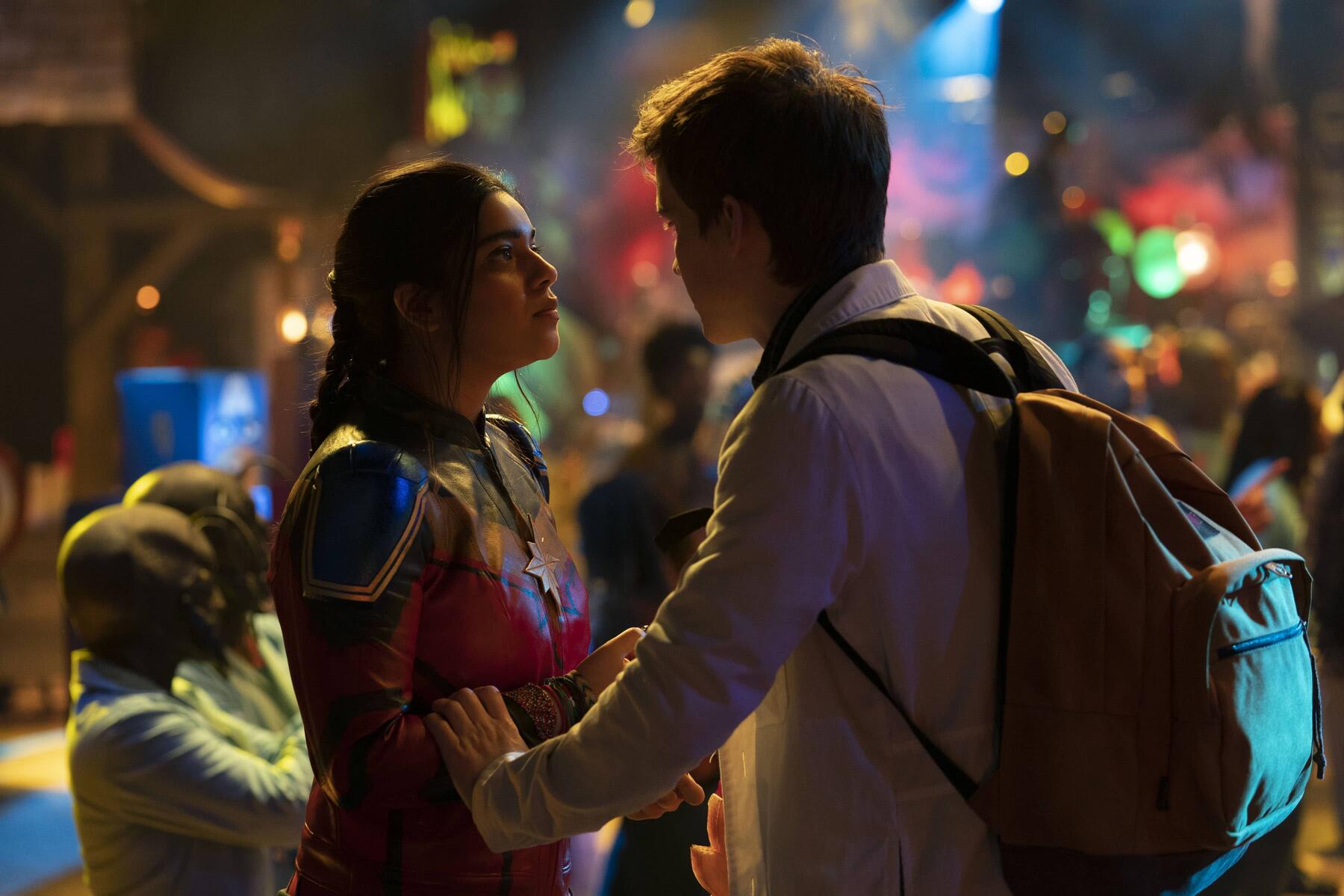The addition of “Ms. Marvel” to the Marvel Cinematic Universe has excited both new and longtime fans. The series, which hit Disney+ in June, follows a young Pakistani girl as she navigates life with her newfound abilities and love for Captain Marvel. Based on the 2014 comic book “Ms. Marvel Volume 1: No Normal,” “Ms. Marvel” brings the same youthful energy and colorful imagination as its source material. However, its youthful feel may impact the way that viewers see the next phase of the MCU. The show shares a collection of themes with other children’s movies, making it possible that “Ms. Marvel” is Marvel’s first attempt to intentionally introduce the MCU to the younger generation. Because of this, many fans may not take the show seriously, or they may skip out on the show entirely. Additionally, fans may be left to wonder if this is the new normal for future Marvel content. While the show’s youthful themes may be a breath of fresh air to some, others may not take too kindly to the young heroine.
Episode 1, which is titled “Generation Why,” begins with a peppy, stop-motion video about the Battle of Earth, and it is narrated by our protagonist, Kamala Khan. Kamala, played by Iman Vellani, speaks excitedly, recapping the final events of “Avengers: Endgame” while showcasing her extensive knowledge of her favorite superhero, Captain Marvel. This sequence, with its upbeat music by The Weeknd, gives us a look into Kamala’s mind and her youthful infatuation with the Avengers — the latter emphasized by shots of Kamala’s colorful drawings of her favorite superheroes. This bouncy sequence is interrupted, however, by her mother, pulling us back into a seemingly mundane reality filled with strict parents and driving tests.
The show also suggests that Kamala is easily distracted by her own fantasies, as it cuts to more stop-motion superheroes and colorful effects every time she is bored or overwhelmed. This sets up the idea that her colorful obsessions hold her back from the real world. We see this more directly when she is called in to speak with her guidance counselor about her daydreams and unwillingness to focus on her future. This is a common theme in children’s movies such as 2010’s “Alice in Wonderland,” 2012’s “Brave” and even 1953’s “Peter Pan.”
Later in the episode, we find out about an event called AvengerCon, which is a convention honoring the Avengers and their fans. This serves as the protagonist’s motive for the rest of the episode.
However, after asking her for her parents’ permission, Kamala is met with a stern no, and she learns just how overprotective her parents can be. But will she listen to them? Absolutely not! Kamala decides to come up with an overly elaborate plan to sneak off to the convention under her parents’ noses with her best friend, Bruno. The night of the convention, the two follow through with their plan, which does not go very smoothly, but they end up at the convention anyway. While at the convention, Kamala enters a costume contest, during which her powers are activated for the first time. With the activation of her powers, she accidentally causes mayhem by knocking over some large props and endangering everyone at the party. To avoid being caught, she and Bruno slip away and run back home, where much to Kamala’s dismay, her mother is waiting for her in her room.
The sneaking-off-to-a-party trope is another common theme in children and young teen movies. The teen always comes up with an elaborate plan to sneak out, but their midnight escapades are foiled, and the parents are waiting on them, ready to punish. One more recent example of this can be found in the 2022 Disney animated film “Turning Red.” The plot for “Turning Red” actually mirrors this episode quite well. The movie starts off by introducing the main character, Meilin, played by Rosalie Chiang, who, much like Kamala, expresses her love for a boy band that she and her friends enjoy with colorful excitement. Meilin also wants to attend a big event with her friends, this event being the concert of the boy band. However, much to her dismay, her overprotective mother says no. But will she listen to her mother? Absolutely not!
Much like Kamala, Meilin and her friends generate an elaborate plan to earn enough money to take themselves to the event. However, the plan gets derailed by Meilin’s emerging powers, and ultimately, her mother finds out. Kamala and Meilin are very similar characters with very similar storylines, but what does this mean for “Ms. Marvel”?
It is no secret that “Ms. Marvel” has a certain youthfulness to it, which is much different than most of its predecessors. In fact, “Ms. Marvel” may be considered the first children’s show to be included in the MCU collection. However, this may affect how seriously the show is taken by longtime fans of the MCU. Die-hard fans may see “Ms. Marvel” as unimportant or possibly cheap for appealing more to a younger audience. But is it really a bad thing to market to the younger generation?
Marvel has caught the attention of younger audiences for years, even with its usual PG-13 rating. So, why not cater to that audience with a superhero that they can relate to and a show that they can enjoy? Additionally, with Marvel getting ready for a new phase in its Avengers franchise, many of the legacy characters that we all know and love — such as Iron Man, Captain America and Black Widow — have become things of the past, which means a new generation of heroes and fans must be introduced. Otherwise, the MCU, gatekept by first-generation fans, will age out.
Marvel needs a new way to evolve and gain new fans, and introducing a kid’s show may not be the worst way to do this. Does this mean that all future Marvel movies will be tailored toward younger audiences from now on? No. Marvel will always be a fandom for all. So, whether you watch “Ms. Marvel” or don’t, just remember that we are all a part of the same fantasy.

















